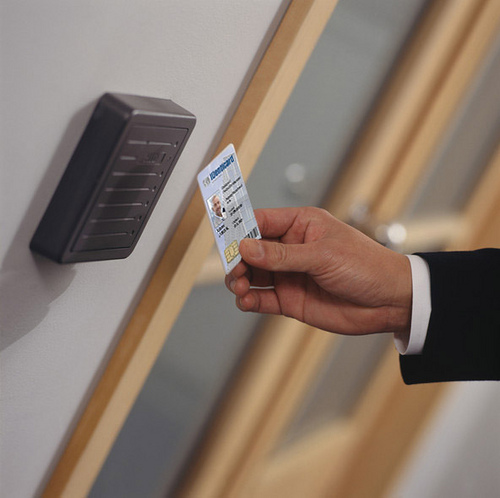Last week, Whitney Fay shared with you her amazing seven year old self’s vision of what the security of the future would look like. And oddly enough, some of her outlandish dreams have actually come true.
Today I want to dive into what security credentials actually exist in today’s market.
Security credentials are used to access a number of things, ranging from computers, to rooms, to safes. They can be as basic as a physical key, or as outlandish as biometrics.
Here are four different security credentials you can use to secure your facilities.
Don’t Hate a Classic: Mechanical Keys
While still very basic in their operation, keys have come an incredibly long way in the last six thousand years.
And while mechanical keys are among some of the first security credentials ever used, gone are the days of the wooden key. Modern-day keys can be an incredibly secure way to lock your facilities. Moreover, they are simple, intuitive, and not plagued by electronic failure.
However, given that they have their roots in the stone ages, they do have a few drawbacks.
The drawbacks to mechanical keys are:
- They can easily be lost or stolen, which can necessitate an expensive rekey.
- They wear down over time and need to be replaced.
- They can be difficult and cumbersome to manage.
Power-up with Electronic Keys
Next up in security credentials are electronic keys, which are a huge improvement on mechanical keys. Just like mechanical keys, electronic keys are intuitive to the user, but they are not burdened by the downsides of mechanical keys.
While they can still be lost or stolen, most electronic keys can be deactivated from the lock. As a result, if one of these security credentials is compromised, a rekey is not necessary.
Like mechanical keys, they will eventually wear down; however, it will take much longer for this process to happen.
The big downside to electronic keys is the cost. They are substantially more expensive than mechanical keys.
Magical Card Readers
I remember the first time I went to a hotel and was given a card—rather than a mechanical key—to access my hotel room. They felt magical.
Granted, I was young at the time, but I still think they are a pretty cool type of security credential.
Card readers are a form of access control that allow you to manage all of your locks from a central software system. Users simply swipe their cards to gain access.
The neat thing about these security credentials is that you can program them to only unlock during certain times. For example, at my prior place of employment, only specific individuals were allowed into designated work areas after 5:30 PM.
So what’s the drawback to card readers?
It takes a lot of money, planning, and hardware upgrades to install these systems. If you only need them on one or two doors, your bill won’t be astronomical, but if you need site-wide card readers, it will cost you a pretty penny.
Biometrics: The Security Credentials of the Future?
Just as Whitney foretold, biometrics are now an option; however, there are not many everyday locks that offer this technology.
This technology costs a lot of money, and as a result, is not easily or affordably integrated into commonplace locks. However, if you need high-security locks, biometrics may be well worth the investment.
Just as card readers have come down in price over time, I’m sure that at some point in the not-too-distant future, biometrics will be a more affordable and readily available option.
The Final Decision
When considering which security credentials to use for your facilities, be sure to consider aspects such as:
- Budget;
- Ease of installation;
- Ease of management; and
- Required hardware.
Careful consideration of these items will go a long way in narrowing down the best security credentials to use.
What security credentials do you use? Which ones did we leave off the list? Let us know in the comments!

